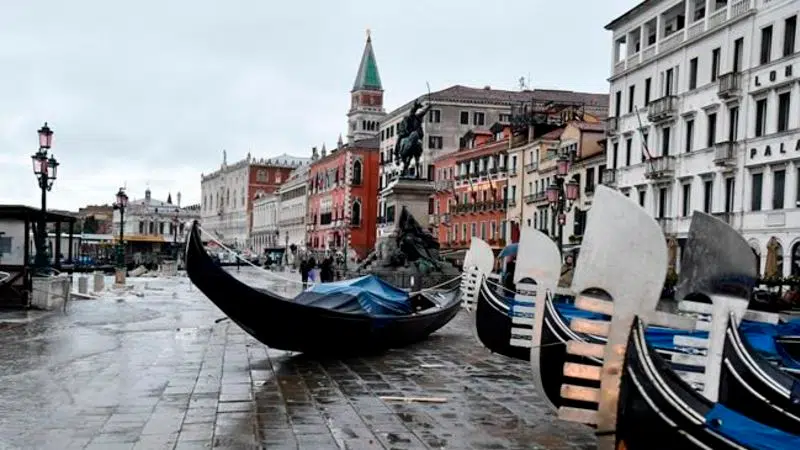
Venice ‘on its knees’ after second-worst flood ever recorded
MILAN — The worst flooding in Venice in more than 50 years prompted calls Wednesday to better protect the historic city from rising sea levels as officials calculated hundreds of millions of euros in damages.
Water levels reached 187 centimetres (74 inches) Tuesday, the second-highest level ever recorded in the city and 7 centimetres (2 1/2 inches) less than the historic 1966 flood. Another wave of exceptionally high water followed Wednesday.
“Venice is on its knees,’’ Mayor Luigi Brugnaro said on Twitter. “St. Mark’s Basilica has sustained serious damage, like the entire city and its islands.”
One death was blamed on the flooding, on the barrier island of Pellestrina. A man in his 70s was apparently electrocuted when he tried to start a pump in his dwelling, said Danny Carrella, an official on the island of 3,500 inhabitants.


